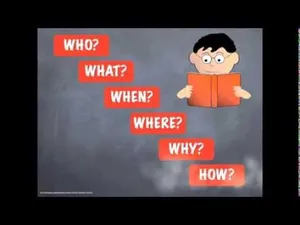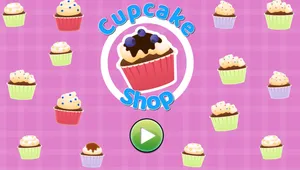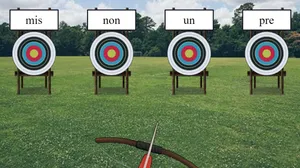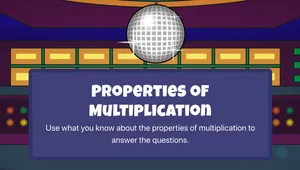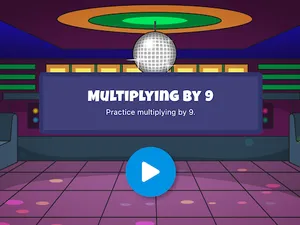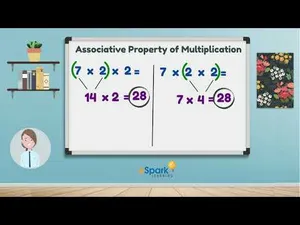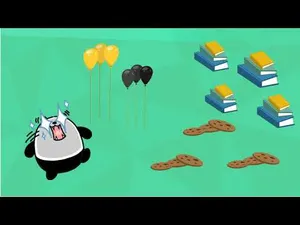Distributive Property Demolition
Properties of Multiplication
Properties of Multiplication
Properties of Multiplication
Multiplying by 9
Multiply, Divide: 6-10
Money Word Problems with Bills
Coin Values
The Associative Property
Properties of Multiplication
Multiplying Two Numbers To Find The Product
Multiplying Whole Numbers
Math Activities and Teaching Resources for 3rd Grade
100 is not enough—it's time to start working with some seriously big numbers. Don't be late this year or your students will know, now that they can tell time to the minute!
In third grade, students will begin developing multiplication and division skills to round out the four core operations. They'll learn about basic equations and apply various strategies to solve complex critical thinking challenges. Fractions are introduced and expanded upon throughout the year and students will now be asked to tell time to the nearest minute if they can't already. Volumes and masses replace length and weight, the concept of area is introduced, and shapes are discussed in terms of various attributes.
Enjoy this sampling of instructional videos, games, number sense, and fluency activities for your 3rd grade classroom!
Some of the skills students will master in eSpark include:
Operations and Algebraic Thinking
- Interpret products of whole numbers as the total number of objects in a number of groups.
- Interpret whole-number quotients of whole numbers; e.g., the partitioning of groups into equal shares of objects.
- Use multiplication and division within 100 to solve word problems in situations involving equal groups, arrays, and measurement quantities.
- Determine the unknown whole number in a multiplication or division equation relating three whole numbers.
- Learn properties of operations and apply them as strategies to multiply and divide.
- Understand division as an unknown-factor problem.
- Fluently multiply and divide within 100; know all products of two 1-digit numbers by the end of the year.
- Solve two-step word problems using all four operations; represent problems with equations and letter stand-ins for unknown quantities.
- Identify arithmetic patterns and explain them using properties of operations.
Number and Operations - Fractions
- Understand a fraction 1/b as the quantity formed by 1 part when a whole is partitioned into b equal parts.
- Understand a fraction a/b as the quantity formed by a parts of size 1/b.
- Understand a fraction as a number on the number line.
- Represent fractions on a number line diagram.
- Explain equivalence of fractions in special cases and compare fractions by reasoning about their size.
Number and Operations in Base Ten
- Use place value understanding to round whole numbers to the nearest 10 or 100.
- Fluently add and subtract within 1000 using strategies and algorithms based on place value, properties of operations, and/or the relationship between addition and subtraction.
Measurement and Data
- Tell and write time to the nearest minute and measure time intervals in minutes.
- Solve word problems involving addition and subtraction of time intervals in minutes.
- Draw a scaled picture graph and a scaled bar graph to represent a data set with several categories.
- Solve one- and two-step "how many more" and "how many less" problems using information presented in scaled bar graphs.
- Measure areas by counting unit squares.
- Relate area to the operations of multiplication and addition.
- Solve real world and mathematical problems involving perimeters of polygons.
eSpark is truly unique in the world of online learning. Our holistic, student-centered approach blends the proven benefits of play-based learning with systematic, explicit, and direct instruction. It’s proof that learning can be fun, personalized, and effective, all at once!
eSpark meets the criteria for evidence-based interventions under ESSA guidelines, and has been proven in multiple studies to improve student performance in math and reading.
When you sign up for an eSpark account, your students experience these activities via adaptive, differentiated independent pathways and teacher-driven small group assignments. Teachers also have access to detailed usage and progress reports with valuable insights into standards mastery, student growth trends, and intervention opportunities.
With the addition of the game-changing Choice Texts for the 2023-2024 school year, eSpark has cemented its status as the most loved supplemental instruction option for students and teachers alike. Claim your free account today and see the difference for yourself!
